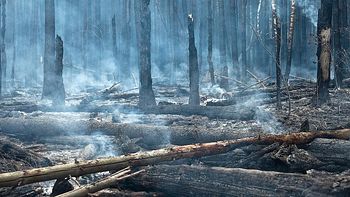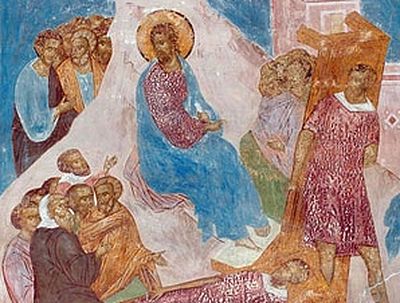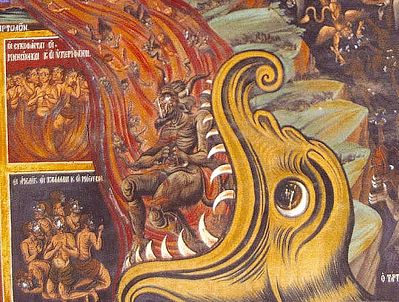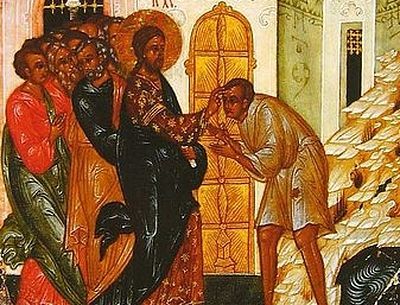 Photo by Ilya Varlamov
Photo by Ilya Varlamov
Also through the Prophet Moses did the Lord reveal to the chosen people that their prosperity depends upon their faithfulness to God, and upon their fulfillment of the commandments which He gave to people. If they stray from their fulfillment of the commandments and worship idols, then The LORD's wrath be kindled against you, and he shut up the heaven, that there be no rain, and that the land yield not her fruit (Deut. 11:17).
On the other hand, the Lord God sends people fruit-giving rain for their pious life: If ye walk in my statutes, and keep my commandments, and do them; Then I will give you rain in due season, and the land shall yield her increase, and the trees of the field shall yield their fruit (Lev. 26:3–4).
Referring to the significance of moisture for the earth, the Prophet Hosea says of the Lord: Then shall we know, if we follow on to know the LORD: his going forth is prepared as the morning; and he shall come unto us as the rain, as the latter and former rain unto the earth (Hos. 6:3). After a dry summer beginning in mid-May until the second half of October, a rainy period begins in Palestine. The most fruitful rains were the early (October–November) and the late (February–early March) rains, which are often cited in Holy Scripture (see Jer. 5:24; Jac. 5:7). The late, spring rains were especially needed for a fruitful harvest. Thanks to these rains, the reservoirs were filled from which crops were irrigated during the dry summer months.
For Biblical man, raised on the Divinely-revealed holy books, the thought that weather could exist independently from God would have made no sense. In chapter 14 of the book of the Prophet Jeremiah is found the Lord’s word to the prophet about drought. The Prophet says to the Lord, Are there any among the vanities of the Gentiles that can cause rain? or can the heavens give showers? art not thou he, O LORD our God? therefore we will wait upon thee: for thou hast made all these things (Jer. 14:22). This very important thought about Divine Providence in nature is developed in the New Testament. God witnesses of Himself: Nevertheless he left not himself without witness, in that he did good, and gave us rain from heaven, and fruitful seasons, filling our hearts with food and gladness (Acts 14:17).
The catastrophe that has visited our country not only shows the painful wounds of society, but is also a testimony to its generally catastrophic spiritual and moral state. Only a small portion of the population leads a spiritual life and strives to fulfill the Divine commandments. A large part of the population suffers from the serious illness of faithlessness, and strives to indulge its passions. All morbid wounds grow from this: millions of women murder their own children by abortion; fornication takes place on a massive scale; and widespread greed eats away at the moral values of society like acid. There are many other illnesses. St. Basil the Great says, “If no one makes an effort to repent over the causes of woeful manifestations: why there is drought, why rain, why thunderbolts, why hail? This is for us, who have unrepentant hearts, and who have not been converted until we are stricken.” St. John Chrysostom speaks also about the need to correct our lives and place our hope in God: Leave to God “the time for the end of calamity, and we shall only pray; we ourselves shall live piously; for it is our affair to turn to virtue, while it is God’s affair to stop calamities.” In another work, this great preacher warns: “God is powerful to stop all catastrophes, but until He sees our conversion, He does not put a stop to our woes.”



